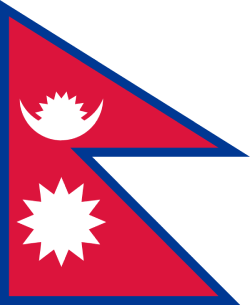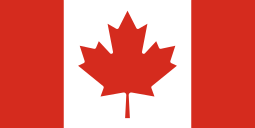The University of Prince Edward Island (PEI) is a public university in Charlottetown, the capital city of Prince Edward Island, Canada. It was established in 1969. PEI was formed by combining Prince of Wales College and St. Dunstan’s University. The university focuses on teaching, research, and community engagement. PEI offers many undergraduate, graduate, and professional programs. It provides a dynamic and inclusive learning environment.
The Robertson Library is a vital resource for the PEI community. It offers many books, journals, and digital resources. The H. L. Cudmore Centre for Innovation and Collaboration has modern classrooms and collaborative spaces. This center fosters innovation and teamwork.
The Science and Research Complex supports advanced scientific exploration. The Chi-Wan Young Sports Centre promotes health and wellness. On-campus housing options include Andrew Hall, Bernardine Hall, and Blanchard Hall.
Dining services cater to diverse dietary preferences. The Wanda Wyatt Dining Hall offers vegetarian, vegan, and gluten-free options. The Student Union Building is the heart of student activities. It features meeting rooms, lounges, and event spaces.
PEI offers over 100 student-run clubs and societies. These clubs foster a sense of community and school spirit among students. Regular events and festivals bring the campus community together. Sports teams and the Chi-Wan Young Sports Centre support students’ interests.
PEI encourages volunteer work and service-learning projects. It offers numerous programs for student leadership, including positions in the Student Union and peer mentoring. PEI provides a supportive campus environment that balances academics, extracurricular activities, and personal development.
Services include academic advising, counseling, career guidance, health and wellness programs, and accessibility support. The Career Services Centre provides resources for job searches, internships, and interviews. The Student Health Centre provides medical care and wellness programs. The Accessibility Services Office ensures students with disabilities have the necessary accommodations.
If you’re in Nepal and aspiring to study in Canada, Goreto Educational Consultancy is your ideal partner. We are renowned as the leading consultancy to study in Canada from Nepal. Our team assists you through the entire application process, ensuring a smooth transition and successful settlement in Canada for your academic pursuits.
Honours Bachelor Degree from the University of Prince Edward Island (PEI)– Apply here
Course Description (Wildlife Conservation)
The Wildlife Conservation course at PEI is designed to provide students with an understanding of the principles and practices of conserving wildlife and their habitats. The course includes:
- Introduction to Wildlife Conservation: An overview of the importance of conserving wildlife, including the history and current trends in wildlife conservation.
- Ecology and Ecosystems: Study of ecosystems, biodiversity, and the ecological roles of different species.
- Conservation Biology: Exploration of genetic diversity, species population dynamics, and conservation strategies.
- Habitat Management: Techniques and principles for managing and restoring wildlife habitats.
- Wildlife Policy and Law: Understanding the legal and policy frameworks that support wildlife conservation efforts.
- Field Methods in Wildlife Conservation: Practical training in field techniques for monitoring and managing wildlife populations.
- Human-Wildlife Interactions: Examination of the interactions between humans and wildlife, including conflicts and coexistence strategies.
- Conservation Ethics: Discussion of ethical considerations in wildlife conservation, including animal rights and the balance between human needs and wildlife protection.
Program Details (Wildlife Conservation)
The Wildlife Conservation program at PEI is comprehensive and structured to provide a thorough education in the field of wildlife conservation. Here are the key details:
- Duration: Typically a four-year undergraduate program.
- Curriculum: Includes core courses in biology, ecology, conservation biology, and habitat management, along with specialized courses in wildlife policy, field methods, and human-wildlife interactions.
- Fieldwork: Significant emphasis on hands-on experience through fieldwork and practical training in wildlife conservation techniques.
- Research Opportunities: Opportunities for students to engage in research projects and internships with conservation organizations and agencies.
- Capstone Project: A final-year capstone project or thesis, where students apply their knowledge to a real-world conservation issue.
- Certification: Graduates are prepared to pursue certifications relevant to wildlife conservation, enhancing their qualifications for professional roles.
- Career Opportunities: Graduates can pursue careers in wildlife management, conservation research, environmental consulting, non-profit conservation organizations, and government agencies. They are equipped to work in roles such as wildlife biologists, conservation officers, ecological consultants, and environmental educators.
- Support Services: The program provides academic advising, career guidance, and support for internships and job placements.
PEI’s Wildlife Conservation program aims to equip students with the knowledge, skills, and practical experience needed to effectively contribute to the conservation of wildlife and natural habitats.
Course Overview
| Program Code | |
|---|---|
| Program Category Name | Health, Wellness, and Sciences |
| Program Level | Bachelors |
| Campus | Charlottetown Campus |
| Duration | 4 year(s) |
| Fees in CAD | CAD$ 13860 |
Course Requirements
| Year | Course Code | Course Title | Department |
| 1 | BIO 1310 | Introduction to Cell and Molecular Biology | Biology |
| ENV 1010 | Introduction to Environmental Studies | Environmental Studies | |
| UPEI 1010/1020/1030 | First Year Experience | General | |
| IKE 1040 | Indigenous Teachings of Turtle Island | Indigenous Knowledge | |
| ECON 1010 | Introductory Microeconomics | Economics | |
| 2 | BIO 2220 | Ecology | Biology |
| BIO 3310 | Research Methods and Communications in Biology | Biology | |
| ENV 2120 | Earth’s Physical Environment | Environmental Studies | |
| ECON 2110 | Introduction to Resource Economics | Economics | |
| STAT 1210/1910 | Introductory Statistics/Introduction to Probability and Statistics | Statistics | |
| 3 | BIO 3820 | Evolutionary Biology | Biology |
| BIO 3910 OR BIO 4620 | Marine Biology OR Watershed Ecology | Biology | |
| BIO 4130 | Conservation Genetics | Biology | |
| BIO 4150 | Wildlife Health | Biology | |
| ECON 2150 | Environmental Economics | Economics | |
| ENV 4310 | Environmental Impact Assessment | Environmental Studies | |
| 4 | BIO 4520 OR BIO 4540 | Biogeography and Macroecology OR Biodiversity and Conservation Biology | Biology |
| BIO 4910 | Wildlife Conservation and Environmental Management Practicum | Biology |
English Language Requirements:
| READING | WRITING | LISTENING | SPEAKING | OVERALL | |
| IELTS | 6.0 | 6.0 | 5.5 | 5.5 | 6.0 |
| TOEFL | 19 | 19 | 19 | 19 | 80 |
| PTE | 55 | 55 | 55 | 55 | 60 |
Academic Qualifications and Requirements
To enroll in this Bachelor Honours Bachelor Of Science In Biotechnology, you must possess the following qualifications and minimum marks
POSTGRADUATE PROGRAMS
– Bachelor’s degree with 60% or above in the relevant course
– IELTS score of 6.5 with no individual score less than 6.0. (Recommended IELTS 7.0 not less than 6.0 and 65 -70 % or above in Degree)
ADVANCED DIP/ DIPLOMA PROGRAMS
– IELTS score of 6.0 with no individual score less than 5.5.
– Students with 5.5 bands in Writing and reading are not eligible for admission. (Recommended IELTS 6.5 not less than 6.0 and 65 -70 % or above in 12th Grade)
BACHELOR DEGREE PROGRAMS
– IELTS score of 6.5 with no individual score less than 6.0.
– Minimum 65% average scores required.
Required Document Lists
- Certificate of completion of 10+2 standard from a recognized board
- Statement of Purpose
- Letters of Recommendation
- Writing Sample (if required)
- IELTS/TOEFL scorecards
- CV or Resume
- Proof of funding
- Passport
- Student visa
Career Options for Graduates
Graduates of the Wildlife Conservation program have a variety of career paths available to them. Here are some potential options:
1. Wildlife Biologist
2. Conservation Officer
3. Ecological Consultant
4. Wildlife Rehabilitation Specialist
5. Environmental Educator
6. Research Scientist
7. Habitat Restoration Specialist
8. Conservation Policy Analyst
9. Park Ranger
10. Marine Conservationist
11. Wildlife Photographer/Filmmaker
12. Zoologist
13. Environmental Lawyer
14. Non-Profit Program Manager
15. Urban Wildlife Manager
These career options illustrate the diverse opportunities available to graduates of the Wildlife Conservation program, enabling them to work in various roles that contribute to the protection and preservation of wildlife and their habitats.
Fundamental Job Skills
Graduates of Wildlife Conservation programs need a variety of skills to effectively contribute to conservation efforts. Here are some fundamental job skills:
1. Field Research Skills
- Observation and Monitoring: Ability to observe and monitor wildlife behavior and populations.
- Data Collection: Proficiency in collecting biological samples, recording data accurately, and using field equipment.
2. Analytical Skills
- Data Analysis: Capability to analyze ecological data and interpret results using statistical tools and software.
- Problem-Solving: Ability to identify issues in wildlife habitats and develop practical solutions.
3. Technical Skills
- GIS and Mapping: Proficiency in Geographic Information Systems (GIS) for mapping and analyzing wildlife habitats.
- Laboratory Techniques: Knowledge of laboratory techniques for analyzing biological samples.
4. Communication Skills
- Written Communication: Ability to write clear and concise reports, research papers, and grant proposals.
- Public Speaking: Skill in presenting findings and educating the public or stakeholders about conservation efforts.
5. Interpersonal Skills
- Teamwork: Ability to work effectively in teams with other scientists, conservationists, and stakeholders.
- Networking: Building relationships with professionals in the field, government agencies, and non-profit organizations.
6. Project Management
- Planning and Organization: Skill in planning and organizing conservation projects, including managing timelines and resources.
- Budgeting: Ability to manage project budgets and resources efficiently.
7. Technical Writing
- Report Writing: Proficiency in writing detailed and technical reports on research findings and conservation plans.
- Grant Writing: Ability to write proposals to secure funding for conservation projects.
8. Policy Knowledge
- Regulatory Understanding: Knowledge of environmental laws, regulations, and policies related to wildlife conservation.
- Advocacy: Ability to advocate for conservation policies and initiatives.
9. Fieldwork Readiness
- Physical Fitness: Maintaining good physical health to conduct fieldwork in various environments.
- Adaptability: Ability to adapt to challenging field conditions and environments.
10. Ethical Judgment
- Conservation Ethics: Understanding and applying ethical principles in wildlife conservation.
- Animal Welfare: Commitment to ensuring the welfare of animals in research and conservation efforts.
11. Technological Proficiency
- Use of Technology: Familiarity with technology used in conservation, such as camera traps, drones, and remote sensing tools.
- Data Management: Skills in managing large datasets and ensuring data integrity.
12. Public Engagement
- Educational Outreach: Ability to engage with the public through educational programs and outreach activities.
- Community Involvement: Working with local communities to promote and implement conservation initiatives.
These fundamental skills are essential for wildlife conservation professionals to effectively protect and manage wildlife populations and their habitats.
Top Degrees
Program Details
Prog Code:
N/A
Duration:
4 year(s)
Part time jobs:
yes
PGWP eligibility:
yes
IELTS:
6.0
TOEFL:
80
PTE:
60
*Note:
Fees given in canadian dollars.
Prog Code:
N/A
Duration:
4 year(s)
Part time jobs:
yes
PGWP eligibility:
yes
IELTS:
6.0
TOEFL:
80
PTE:
60
*Note:
Fees given in canadian dollars.
Prog Code:
N/A
Duration:
4 year(s)
Part time jobs:
yes
PGWP eligibility:
yes
IELTS:
6.0
TOEFL:
80
PTE:
60
*Note:
Fees given in canadian dollars.
Prog Code:
N/A
Duration:
4 year(s)
Part time jobs:
yes
PGWP eligibility:
yes
IELTS:
6.0
TOEFL:
80
PTE:
60
*Note:
Fees given in canadian dollars.
Prog Code:
N/A
Duration:
4 year(s)
Part time jobs:
yes
PGWP eligibility:
yes
IELTS:
6.0
TOEFL:
80
PTE:
60
*Note:
Fees given in canadian dollars.
Environment and Life Sciences
Environmental Studies(Bachelor Degree)
Prog Code:
N/A
Duration:
4 year(s)
Part time jobs:
yes
PGWP eligibility:
yes
IELTS:
6.0
TOEFL:
80
PTE:
60
*Note:
Fees given in canadian dollars.
Prog Code:
N/A
Duration:
4 year(s)
Part time jobs:
yes
PGWP eligibility:
yes
IELTS:
6.0
TOEFL:
80
PTE:
60
*Note:
Fees given in canadian dollars.
Prog Code:
N/A
Duration:
4 year(s)
Part time jobs:
yes
PGWP eligibility:
yes
IELTS:
6.0
TOEFL:
80
PTE:
60
*Note:
Fees given in canadian dollars.
Environment and Life Sciences
Island Environments and Sustainability
Prog Code:
N/A
Duration:
4 months / year(s)
Part time jobs:
yes
PGWP eligibility:
yes
IELTS:
6.0
TOEFL:
80
PTE:
60
*Note:
Fees given in canadian dollars.
Prog Code:
N/A
Duration:
4 year(s)
Part time jobs:
yes
PGWP eligibility:
yes
IELTS:
6.0
TOEFL:
80
PTE:
60
*Note:
Fees given in canadian dollars.
Useful resources for University of Prince Edward Island
Top Universities in Montreal
Find a list of all the top Montreal universities here with rankings, fees, scholarships & placement details.









